The Modern Motherhood Conflict
In a controversial new book, firebrand French philosopher Elisabeth Badinter argues that modern motherhood is a throwback to the past—and has become a tyranny for women
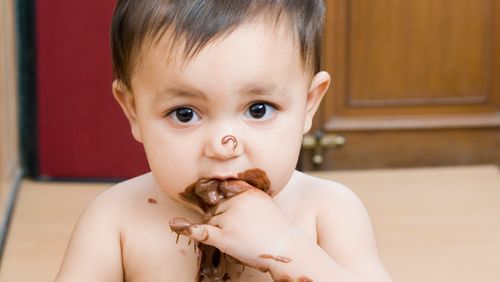
TO ELISABETH BADINTER, educated women who become stay-at-home moms have lost their minds. She explains why in her latest book, The Conflict: How Modern Motherhood Undermines the Status of Women, which has sold more than 200,000 copies in France. An English translation hits U.S. shelves on April 24. Here, Badinter speaks with Pamela Druckerman, author of Bringing Up Bébé: One American Mother Discovers the Wisdom of French Parenting.
MARIE CLAIRE: What's the problem with being a mother today?
ELISABETH BADINTER: There's a feminism that was born in the 1980s in the United States that defines women through motherhood. I find this dangerous. From my point of view, motherhood is a choice, not an obligation.
MC: You've written about a "naturalist" strain to modern motherhood—breast-feeding on demand, natural childbirth, eco-friendly washable diapers, homemade baby food—that pushes women back into the home.
EB: Unquestionably. The gains of the previous century—epidurals, bottle-feeding, disposable diapers—allowed women to reconcile their roles as mothers with the necessity of being financially independent. This 21st-century project of naturalism, which makes the female into an animal again, is a rejection of those gains.
Homemade baby food is terrific if you know how to cook and have time to make it. But why demonize commercial baby food, which is balanced, quick, and accessible to fathers?
While we're waiting for biodegradable diapers to reach the market, I would choose disposable diapers [instead of washable ones]. Between the protection of the environment and the protection of the liberty and free time of women, my choice is made.
Stay In The Know
Get exclusive access to fashion and beauty trends, hot-off-the-press celebrity news, and more.
MC: You also point out that the amount of time women spend with their children has gone up enormously.
EB: Absolutely. And the parents are less happy. They're always full of anxiety and guilt that they never do enough for their children. And I find that incompatible with the desires of women today. The majority of women in Western countries want to have economic independence, too.
Also, life expectancy keeps increasing—85 years for women. And taking care of kids is just 18 years. What do we do after that, when the children leave? It's much too late to be able to make a living in the workplace.
MC: You write about an "intellectual dowry"—women who get a higher education but then stop working after they have children.
EB: These women don't see beyond the next three years. I'm stupefied when I say to them, "If you completely quit working, do you think that in three years it's going to be easy to find an equivalent job?" And it's this absence of vision in the middle of their lives that I find infantile. I'll say it: infantile. It doesn't give me any pleasure to say that. And this intellectual dowry is all in the name of "I want to be a good mother."
MC: Do you believe that it's good for children to have a mother who works?
EB: Yes. Learning to get along without their mother is good for children. What's more, it's an excellent reason to further involve the father in caring for the child. For 30 years, the objective has been to involve the father in taking care of a baby, from birth. If the child becomes the mother's sole purpose, it discourages the father from participating.
I'm also concerned about the effects of the long-term fusion between a mother and child beyond the first few months. I'm afraid that this fusion will impact children in a way that we can't measure today.
MC: You've also spoken about how all-consuming motherhood affects couples' relationships. You write, "If the woman breast-feeds for months, even years, how is the couple to retain intimacy?"
EB: If 24 hours a day the woman is reduced to her role as a nursing animal, even putting the child in the bed between the father and the mother, the father is completely put aside. I think this is very hard for men, and I think the child becomes a factor in the separation of the couple.
Breast-feeding a few weeks, sometimes a few months, OK. But when it's recommended that you breast-feed your child for one year—six months exclusively, with nothing else, day and night, on demand—there are obvious consequences for a couple.
Let women do what they want! There are women for whom breast-feeding is a true pleasure. It's very good for them and it's very good for the baby. But to breast-feed a baby if the mother doesn't herself like it? It's a catastrophe. The decision to breast-feed is an intimate and private decision. No one should be able to interfere.
MC: Do you believe that the benefits of breast milk are exaggerated?
EB: It's true that mother's milk is perfectly adapted to the needs of a child, and that it evolves according to the growth of the baby. It's excellent. But frankly, the formula manufactured today is almost as good. And if it's beneficial to the life of the mother, it's worth it to give a bottle. We should stop telling women that when they give a child a bottle they're bad mothers.
MC: You write that French women have a long history of not giving up their identity as women when they become mothers.
EB: Since the 18th century, the idea was that when you have a child, you become a mother. But you're not just a mother. Even when there's a child, first of all, you must have a satisfying sex life—that's an imperative.
Something of that remains today. It's one of the genes of the French—the idea that when one is a mother, life doesn't stop, and that to be just a mother is not to be a fully realized woman. It's one part of your life. It's not your whole life.
I find that attitude liberating. I don't want us to start sending off children to wet nurses again. I don't want to go back to that. But I think that some part of that break between the child and the mother works very well for me, it works very well for us. And I'd like to conserve that.
MC: Do you have any advice for today's young women?
EB: Don't ever give up your economic independence. Don't give up your job. You must be able to survive without a man. Because if you no longer get along with your partner or he treats you badly and you don't have the means to leave him, you're enslaved.
-
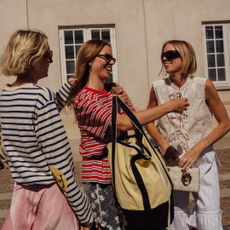 These Chic On-Sale Finds Will Define My Rich-Looking Summer Wardrobe
These Chic On-Sale Finds Will Define My Rich-Looking Summer WardrobeI'm getting ahead with these under-$200 tank tops, staple denim, and breezy dresses.
By Brooke Knappenberger Published
-
 Will 'Pulse' Return for Season 2 After Its Finale Left Us With Heart Palpitations?
Will 'Pulse' Return for Season 2 After Its Finale Left Us With Heart Palpitations?We need to know about the future of the central will-they-won't-they STAT.
By Quinci LeGardye Published
-
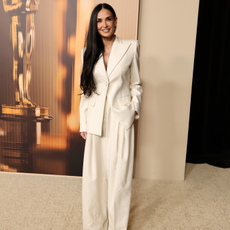 Demi Moore Chopped Her Signature Long Locks for a Rich Girl Lob
Demi Moore Chopped Her Signature Long Locks for a Rich Girl LobThe actress revealed a chop that is old-money coded.
By Ariel Baker Published
-
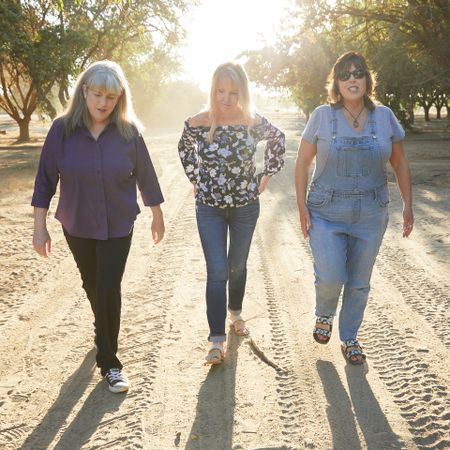 Of Murder and Motherhood
Of Murder and MotherhoodTheir children are gone but these women are united in their fight for justice and answers.
By Katya Cengel Published
-
 60 Gifts for Mom She'll Truly Love
60 Gifts for Mom She'll Truly LoveFrom creature comforts to luxe indulgences.
By Sara Holzman Published
-
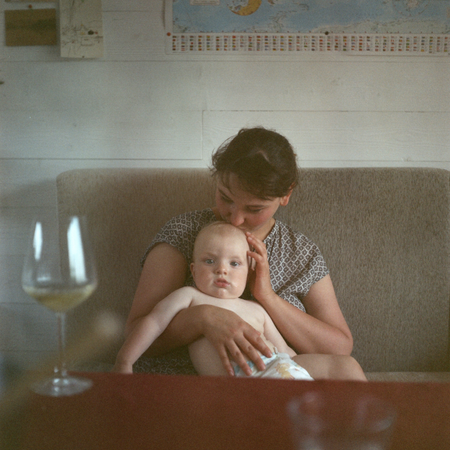 Wine Didn't Make Me a Better Mom
Wine Didn't Make Me a Better MomBut you wouldn't know that scrolling through Instagram. Instead of peddling alcohol and memes, society should give women what they really need: support and resources.
By Kelley Manley Published
-
 'Skye Falling' Deserves a Spot on Your Summer Reading List
'Skye Falling' Deserves a Spot on Your Summer Reading ListIn July, Marie Claire read Mia McKenzie's 'Skye Falling.' See what the #ReadWithMC community thought about the book here.
By Marie Claire Published
-
 What to Know About Adria Biles, Simone Biles' Sister and Biggest Supporter
What to Know About Adria Biles, Simone Biles' Sister and Biggest SupporterFeatures Here's what to know about the Team U.S.A. gymnast's supportive, lookalike sis.
By Katherine J. Igoe Last updated
-
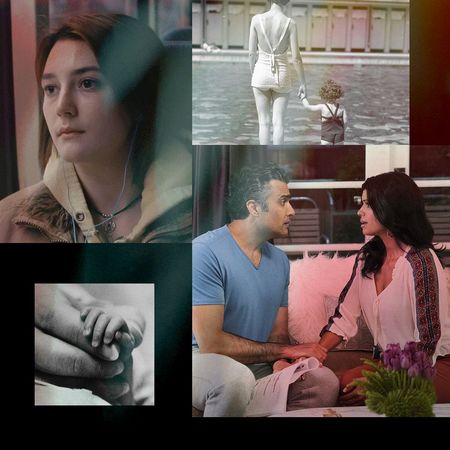 We Need to See More Parents Having Abortions in Film and Television
We Need to See More Parents Having Abortions in Film and TelevisionParents are the most common abortion patients yet storylines about the medical choice almost always revolve around single teens.
By Danielle Campoamor Published
-
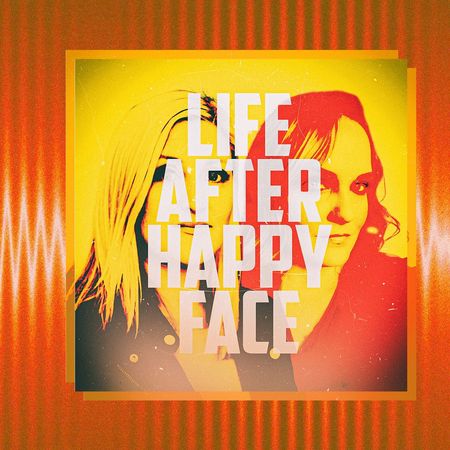 Melissa Moore's 'Life After Happy Face' Podcast Looks at Killers Through New Eyes
Melissa Moore's 'Life After Happy Face' Podcast Looks at Killers Through New EyesThe true crime expert and daughter of the Happy Face Killer opens up to Marie Claire about destigmatizing the label of 'criminal's kid.'
By Maria Ricapito Published
-
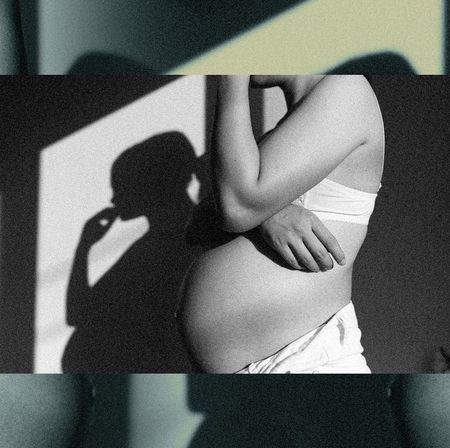 Won't Call the Midwife
Won't Call the MidwifeWith high rates of maternal mortality and coercion in hospital settings, more American women are exploring childbirth without any medical assistance whatsoever. The Free Birth Society provides community, resources, and validation for these convention buckers. But experts warn that choice comes at the expense of safety.
By Rebecca Grant Published